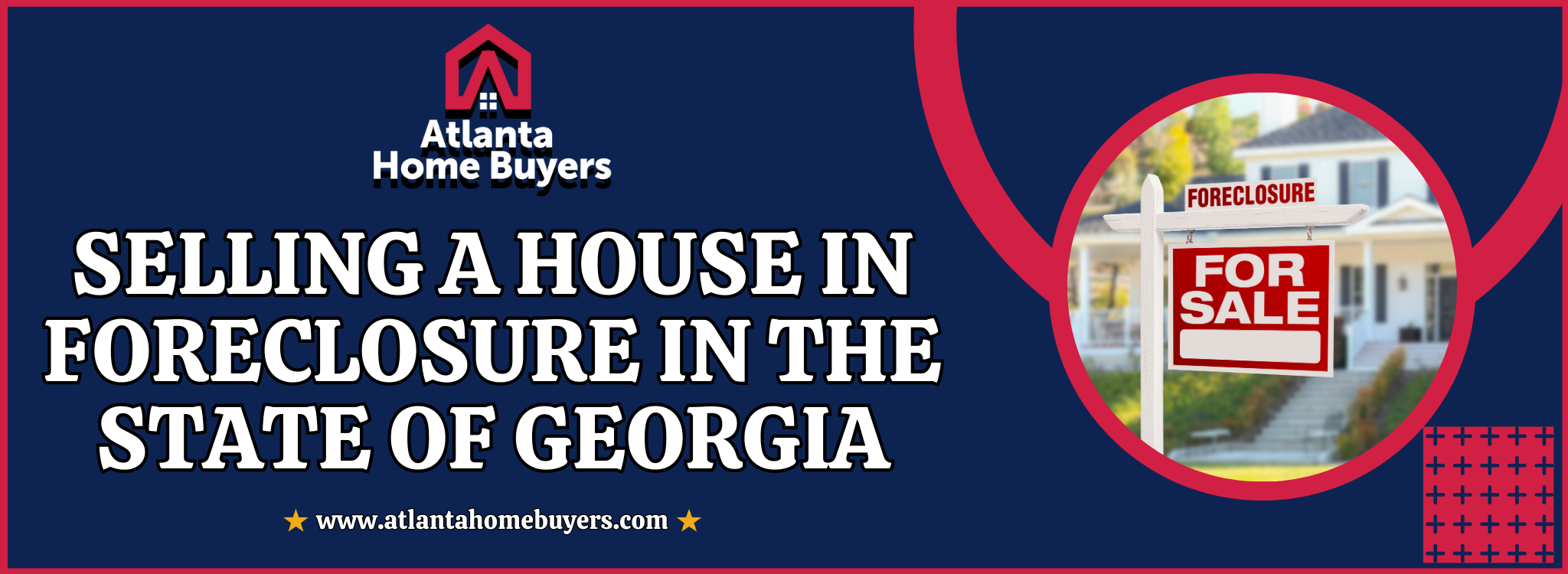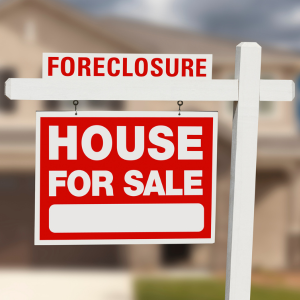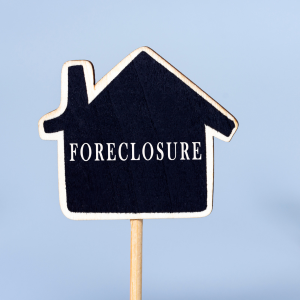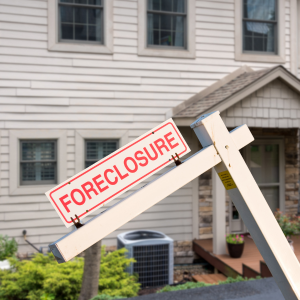
The Legal Process of Foreclosure in Georgia
What Are the Steps Involved in a Georgia Foreclosure?
In Georgia, foreclosures typically occur without going to court. The process begins when the lender issues a “Notice of Default and Intent to Sell” to the homeowner, which must be sent at least 30 days before the property can be sold. The lender then publishes an advertisement in a local newspaper once a week for four weeks. On the sale day, the property is auctioned to the highest bidder at the courthouse, often through a Quitclaim deed. Understanding the legal requirements for foreclosure in Georgia is crucial for homeowners facing mortgage foreclosure.

How Long Does the Foreclosure Process Take in Georgia?
The foreclosure process in Georgia can happen fast because it doesn’t involve the court. Typically, it takes about 90 days from the first notice to the sale. However, the time may vary based on how quickly the lender acts and other factors. Lender foreclosure rights in Georgia allow them to move quickly if the borrower doesn’t respond.
Can Homeowners Stop the Foreclosure Process?
Georgia homeowners can keep their homes from going into debt. They can get the mortgage back by paying the past due amount plus any fees due before the sale. You could also try to modify your loan or work out a payment plan with the lender. Getting bankruptcy can also stop the process for a while. People in Georgia who own homes should move quickly to avoid deficiency judgments.
Options Available to Sell a Foreclosed House
Is a Short Sale a Good Option for a Foreclosed Home in Georgia?
A short sale can be a good choice for some facing foreclosure in Georgia. This means selling the house for less than what is owed on the mortgage if the lender agrees. A short sale might not hurt the homeowner’s credit as much as a foreclosure. Although negotiating with lenders in Georgia can be challenging, working with experts can help when selling distressed property.

What Is the Role of an Auction in Selling a Foreclosed Property?
Auctions are key in selling foreclosed homes in Georgia. Properties are sold to the highest bidder, often at the county courthouse. Auctions are a quick way for lenders to recover losses. Anyone joining Georgia foreclosure auctions must understand how to bid and have funds ready. Georgia trustee sales follow state rules, ensuring an orderly process for buyers and sellers.
How Can Real Estate Professionals Help in Selling Foreclosed Homes?
Real estate professionals who specialize in foreclosures in Georgia can be invaluable. They understand Georgia’s real estate laws and know how to attract buyers fast. By setting the right price and marketing well, home buyers help foreclosed homes sell quickly. Choosing a skilled home buyer can help homeowners and lenders get the best results.
At Atlanta Home Buyers, we support people through the foreclosure process in Georgia. We provide resources and guidance every step of the way.
Financial Implications of Selling a Foreclosure
What Costs Are Associated with Selling a Foreclosed House?
When you sell a foreclosed house, you have some costs. You might need to pay real estate professionals, usually a part of the sale price. There are also closing costs like title insurance and escrow fees. Knowing your home’s market value is essential because it helps set the right price. Taxes depend on how much you owe on the house. All these things can affect your money, so talking to experts can help you plan for all the costs.

Will Selling My Foreclosed Home Impact My Credit Score?
Selling your foreclosed home can change your credit score. During the foreclosure process, your credit report will show this financial hardship, which lowers your score. But if you sell the home in a short sale, it might not hurt your score as much as full foreclosure. After selling, start rebuilding credit by paying other debts and making timely payments. Knowing these impacts helps you plan for recovery.
How Are Taxes Affected When Selling a Foreclosed Home?
Taxes are essential when you sell a foreclosed home. A deficiency judgment could happen if the house sells for less than you owe. The IRS also sees forgiven debt as income, meaning more taxes. However, some debt forgiveness might not be taxed due to special programs. Learning about capital gains tax is also helpful. Checking with a tax pro can make this easier to handle.
Enhancing the Value of a House in Foreclosure
What Repairs Can Be Made Before Selling a Foreclosed House?
Fixing up a house can help its market value. Do cost-effective repairs like stopping leaks, fixing broken windows, or painting walls. An inspection tells what must be fixed before a buyer looks at the house. Always choose repairs that give the best return without spending too much.

Should You Invest in Home Staging for a Foreclosed Property?
Home staging can make a foreclosed property look better to buyers. It helps people imagine living there, improving visual appeal. Though it needs some initial investment, home staging can bring more interest and higher offers. It’s a smart move to think about when selling.
Are There Cost-Effective Upgrades to Improve Market Value?
You can do minor upgrades to raise the market value of a foreclosed home. Consider inexpensive renovations like new light fixtures, lovely landscaping, or kitchen and bathroom hardware. These updates often bring good returns and make your home stand out. Focus on affordable changes to get the best results.
For expert support navigating the foreclosure process in Georgia, contact Atlanta Home Buyers. Our team offers personalized guidance, valuable resources, and practical solutions to help you make informed decisions and explore your best options.
Legal Requirements and Compliance for Selling
What Documents Are Required to Sell a Foreclosed House in Georgia?
Selling a foreclosed house in Georgia needs some essential papers. You need to handle foreclosure notices carefully. Important papers include the Notice of Default, which tells the homeowner they are late on payments, and the Notice of Sale, which shows the auction date and place. Understanding these foreclosure documents is key. You also need a Trustee’s Deed upon Sale to change property ownership. Following all legal rules for foreclosure in Georgia helps make everything go smoothly.

Are There Specific Georgia Real Estate Laws Affecting Foreclosure Sales?
Yes, Georgia has specific real estate laws that affect foreclosure sales. Georgia often uses a non-judicial foreclosure process, so lenders don’t need a court to foreclose. However, knowing the legal requirements for foreclosure in Georgia is very important. Sellers have to follow state rules about notice times and how sales happen. Knowing these laws helps avoid problems when selling.
How Can Homeowners Ensure Compliance During the Sale?
To follow the rules when selling a foreclosed home, homeowners should get foreclosure help in Georgia. This help can guide them through the Georgia foreclosure process and ensure they follow all needed legal steps. It’s also important to watch out for foreclosure scams in Georgia. Getting advice from experts who handle foreclosure notices can make things easier and less stressful.
Marketing Strategies for a Foreclosed House
How to List a Foreclosed Home Effectively?
To list a foreclosed home well, use easy house-selling tips that work in Georgia. Working with real estate professionals who know foreclosure sales ensures the home is marketed right. Knowing the Georgia foreclosure timeline helps plan and develop sales strategies better. Use high-quality photos to show the home’s unique features for the best outcome.

What Marketing Channels Are Best for Promoting a Foreclosure Sale?
Promoting a foreclosure sale needs the wise use of marketing channels. In Georgia, listing on popular real estate sites and platforms focused on Georgia real estate can help more people see them. Checking out foreclosure options in Georgia, like local listings and auctions, can bring in more buyers. By looking at Georgia housing market trends, sellers can focus their marketing efforts effectively.
Can Social Media Help Sell a Foreclosed Home?
Social media is great for selling a foreclosed house. Sites like Facebook and Instagram provide Georgia foreclosure auctions and market insights, helping increase exposure. Using marketing strategies made for social media, sellers can reach more potential buyers interested in a foreclosed home. Engaging posts and targeted ads can boost interest and speed up the sale.
Finding the Right Buyers for Your Foreclosed House
Selling a foreclosed house can be challenging, but knowing who might want to buy it makes things easier. Real estate investors and cash buyers usually look for these properties. They like the chance to invest in real estate and see the value in foreclosures. If you’re dealing with the foreclosure process in Georgia or thinking about buying a house in foreclosure there, it’s good to know who your buyers are.

Who Buys Foreclosed Homes and Why?
Regular homebuyers and investors interested in foreclosures often see value in foreclosed homes. They like that these homes might be priced below market value. Real estate professionals help these buyers by showing them foreclosure homes for sale in Georgia and explaining their benefits.
How to Identify Cash Buyers Interested in Foreclosures?
Talk to real estate professionals who know this market well to find cash buyers interested in foreclosures. Networking is key to finding cash buyers for foreclosures in Georgia. These buyers like properties that can offer quick returns. Knowing how to sell a house in foreclosure in Georgia means spotting the right people and showing your property as a valuable opportunity.
What Are the Benefits of Selling to Real Estate Investors?
Selling to real estate investors has many benefits. These buyers give financial stability and know Georgia’s real estate investment scene, especially with foreclosures. Real estate investors understand a property’s market value and potential and often make cash offers that speed up the selling process. This way is great for home sellers in Georgia looking for trustworthy cash buyers.
Overcoming Challenges in Selling Foreclosure Properties
Selling foreclosure properties means understanding the challenges and following the law. Entity1 and Entity4 face legal compliance, mediation, and dispute resolution. Knowing the legal requirements for foreclosure in Georgia and using foreclosure mediation programs can help manage these problems.

What Common Obstacles Do Sellers Face in the Foreclosure Market?
Sellers in the foreclosure market often face legal disputes and uncertain markets. Getting over these issues means understanding the foreclosure process in Georgia. Dealing with lenders and sorting out legal disputes are common problems that need careful handling.
How to Address Legal Disputes Related to Foreclosure Sales?
Following the law is essential in foreclosure sales. Legal advice and help from Georgia legal aid for foreclosures can settle disputes. Knowing the legal requirements for foreclosure in Georgia and handling foreclosure notices correctly can lessen conflicts.
Can Mediation Help Resolve Foreclosure Sale Issues?
Mediation can help solve problems related to foreclosure sales. Programs like foreclosure mediation in Georgia support dispute resolution and can prevent deficiency judgments. By working with lenders and following Georgia’s legal rules, sellers can find solutions to challenging foreclosure situations.
For expert guidance through foreclosure in Georgia, visit Atlanta Home Buyers for resources, advice, and tailored solutions.
FAQs:
How can I sell a house in foreclosure in Georgia?
Selling a foreclosed home in Georgia means acting quickly. You must understand the local real estate market in places like Atlanta and Savannah. Talking to a real estate attorney about your options might be helpful.
What should I do if I’m facing foreclosure in Athens or other cities in Georgia?
Contact your lender if you’re facing foreclosure in Athens, Augusta, or Georgia. Discuss ways to modify your loan or think about refinancing. Look into pre-foreclosure steps and consider working with a financial advisor to protect your credit score.
Is bankruptcy an option to stop foreclosure in Georgia?
Yes, filing for bankruptcy can temporarily stop foreclosure in Georgia. But you should think carefully about how it affects your finances in the long term. Talking to a lawyer can help you see if this is your right choice.
How does the foreclosure process differ in cities like Columbus and Macon compared to other parts of Georgia?
Foreclosure in Columbus, Macon, and other Georgia cities generally follows state rules. However, local courts might have specific processes or timelines. Getting help from local legal aid resources can help one understand these differences.
What are the tax implications of foreclosure in Georgia?
Foreclosure can affect taxes, such as making forgiven debt count as income. This could change how much tax you owe. Talking to a tax professional to handle these issues correctly is smart.
Can a house in foreclosure in Valdosta or Marietta be a good investment?
If you’re careful, buying a foreclosed house in Valdosta, Marietta, or other Georgia areas can be a good deal. Check Georgia foreclosure listings and speak to real estate experts to understand the risks and benefits.
What steps can be taken to avoid foreclosure scams in Georgia?
To avoid scams, always check any person or company offering help. Avoid those asking for fees upfront, and make sure they’re state-certified. Georgia legal aid services can provide guidance.
How can I reinstate my loan during the foreclosure process?
To reinstate your loan, you need to pay missed payments plus fees. Talk to your lender to discuss repayment plans. Act fast and consider getting financial advice to regain control over your home’s status.
Key Insights
- Knowing the foreclosure processes in Georgia is essential if you want to sell a house that’s in foreclosure. We offer tips for selling homes in places like Macon, Marietta, and Roswell.
- If your house is in foreclosure in Georgia, learn how to sell it and avoid deficiency judgments.
- Our resources show how to reinstate your loan and navigate the Georgia judicial foreclosure process. Look for foreclosure scams and know what happens when your house is foreclosed.
- It’s wise to speak to a lawyer and respond quickly to any foreclosure notices you get.
- We discuss how foreclosure affects your credit score and guide you through Georgia foreclosure listings. These tips are helpful for people interested in real estate investment in Georgia.
- Learn how to avoid foreclosure by understanding property liens, loan modification options, and court approval processes for foreclosure sales in Georgia.
- Get straightforward explanations of Georgia’s legal procedures, like the foreclosure redemption period and probate issues related to foreclosure.
- Find out about refinancing after foreclosure in Georgia and understand any tax implications. This helps you make smart financial choices.
- Get expert advice on using foreclosure mediation programs and finding help from Georgia legal aid services for handling foreclosure documents.
- Follow steps to avoid foreclosure and talk to experts about strategies like deeds instead of foreclosure and managing home equity loans in Georgia.
This information applies to Georgia and its cities like Atlanta, Savannah, and Brookhaven. For help or questions, call us at (404) 400-5400. You can also visit our website at Atlanta Home Buyers for more details.
Helpful Georgia Blog Articles
- Essential Guide To Selling Your Home During Divorce In Georgia
- Selling Your Home in Foreclosure in the State of Georgia
- How to Sell a House Without a Realtor in State of Georgia
- Stop Foreclosure in Georgia
- Essential Guide To Selling Your Home During Divorce In Georgia
- Is It Possible to Sell a House With a Mortgage in Georgia
- Filing a Quitclaim Deed in Georgia: Step-by-Step Guide



